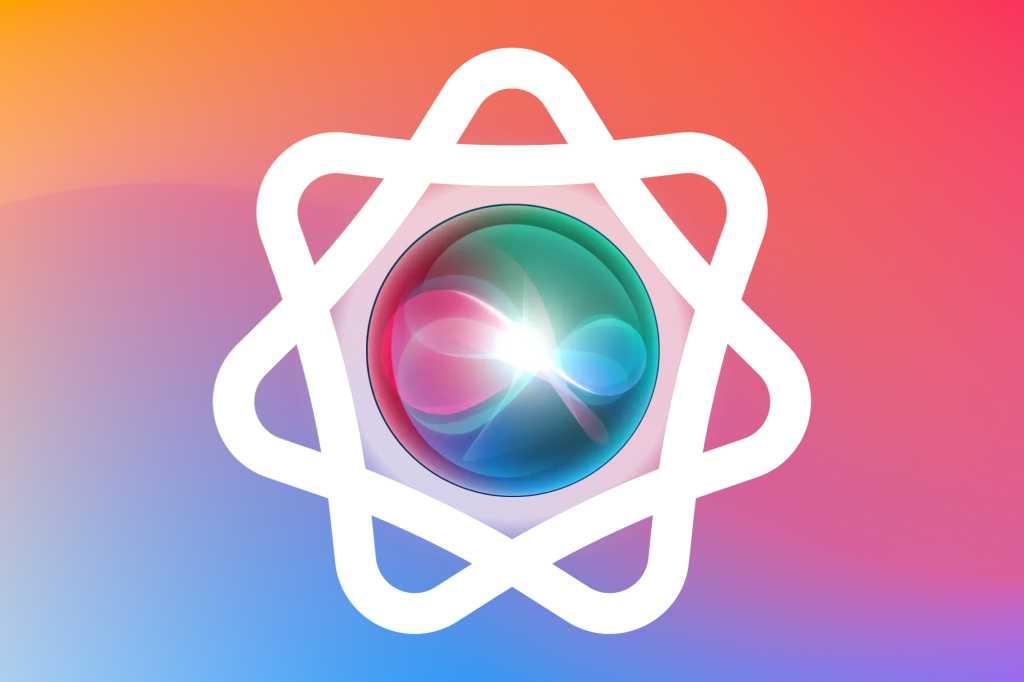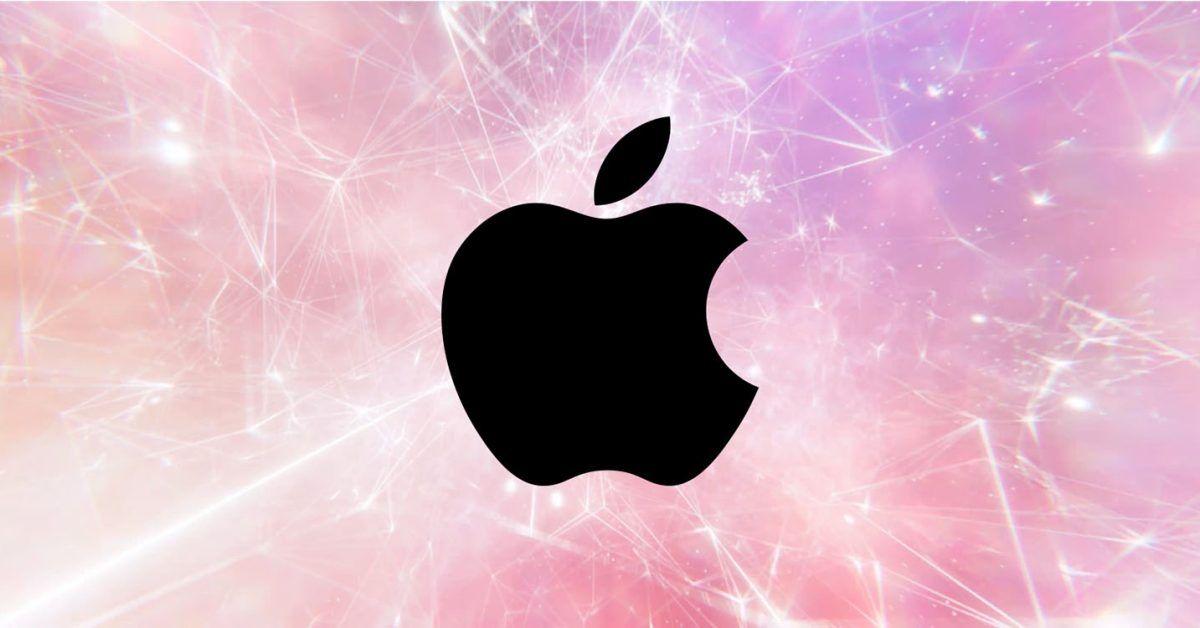Apple's AI Ambitions: Powerful Chatbot in Development, but Challenges Remain
3 Sources
3 Sources
[1]
Apple chatbot is almost as good as ChatGPT... except for the mistakes
Prototype shows promise, but execs can't stomach the hallucinations. With just one week to go until Apple opens its doors for WWDC 2025, sources suggest the event will be high on style and low on substance. With the company's AI efforts falling under an unforgiving spotlight since it announced Apple Intelligence prematurely last June, next week's keynote is likely to focus on sorting out (and talking up) the basics. But that doesn't mean there aren't interesting developments in the works, perhaps to be announced at WWDC 2026. According to Bloomberg reporter Mark Gurman, writing in the latest instalment of his Power On newsletter, Apple has created large language models (LLMs) that are far more powerful than the ones currently offered under the Apple Intelligence umbrella. They're just not ready to be unveiled to the public quite yet. Apple Intelligence, designed to be lightweight so it can run on-device, uses LLM models with roughly three billion parameters. But the company, Gurman claims, already has multiple models running at far higher levels: LLMs with seven billion, 33 billion and 150 billion parameters are in "active use" at Apple research facilities. The last of these, which operates via the cloud, "approaches the quality of recent ChatGPT rollouts" according to internal testing. And these aren't just theoretical models with no practical application; Apple staff are already using them to power a chatbot and see how it compares with ChatGPT and other rival platforms. The company uses an internal testing tool called Playground for this process. This all sounds promising. But then again, Apple Intelligence sounded promising when it was announced last year before arriving late and unfit for purpose. Apple won't want to make that reputation-damaging mistake again, which is why executives are reluctant to show the company's hand too soon this time. The principal cause for hesitation right now, Gurman writes, is the prevalence in the models' output of troubling "hallucinations"-a term which refers to factual errors that an AI model presents as fact and can cause serious real-world problems. All AI models currently in operation are afflicted by hallucinations to a greater or lesser extent, but it would seem that either Apple's models are more hallucinatory than most, or that Apple execs have a lower tolerance for such inaccuracies. Not all execs agree, however. Gurman says there are "philosophical differences" as to when (or whether) the company should launch a chatbot powered by its newer LLMs. This may be an acknowledgement that Apple faces something of a lose-lose situation this summer: either it unveils new products and risks public failure, or it unveils nothing of substance and risks being left behind (or perceived as such, which is almost as bad). We'll see which path the company chooses next week.
[2]
Apple's ChatGPT Rival Moves Forward, But Siri's Future Still Uncertain
More details have emerged regarding Apple's plans to dramatically improve Siri by leveraging large language models (LLMs) that will make it more conversational and capable of nuanced reasoning. Meanwhile, Apple's work on a ChatGPT competitor model is also moving forward. According to Bloomberg's Mark Gurman, the company is internally testing a broad range of models of varying complexity. Versions with 3 billion, 7 billion, 33 billion, and 150 billion parameters are now said to be "in active use." Like ChatGPT, the 150 billion parameter model relies on the cloud, and its size means it is much more powerful than on-device Apple Intelligence, whose foundational models are 3 billion parameters. With the help of an internal testing tool called "Playground," Apple has run benchmarks on the model that suggest it "approaches the quality of recent ChatGPT rollouts." However, there are still said to be concerns over its tendency to hallucinate. Meanwhile, "philosophical differences" remain among company executives, though Gurman provided no additional details on what they might be. A previous report revealed that Apple has AI offices in Zurich, where employees are working on the all-new software architecture for Siri. The model is expected to eventually replace Siri's current "hybrid" architecture that has been incoherently layered up with different functionality. Gurman reports that Apple is also testing a chatbot model dubbed "Knowledge" internally that can access the internet to gather and synthesize data from multiple sources. Presumably this would become another Siri capability, but the project is said to be led by Robby Walker, who recently saw Siri removed from his command. According to Gurman, employees familiar with the project say the chatbot project has also been dogged by the same problems that delayed the Siri overhaul. It's still not clear when Apple will implement these technologies, and the company is unlikely to offer launch roadmaps at WWDC this month, given the blowback it received for announcing Apple Intelligence features at last year's conference that still have yet to launch. In the meantime, Google's Gemini is expected to be added to iOS 26 as an alternative to ChatGPT in Siri, and Apple is also said to be in talks with Perplexity to add their AI service as another option in the future, for both Siri and Safari search.
[3]
Old injection trick turns Apple Writing Tools into a chatbot
Apple Intelligence can be turned into a chatbot with some sneaky scripting The revival of a prompt interrupt for Apple Intelligence is already close to being a chatbot. Here's how to turn Apple Writing Tools into a chatbot. The tech industry already has a lot of chatbots, but so far Apple has yet to do the same. Rumors have proposed that Apple is working on its own entry into the market, but it has so far not publicly revealed such a service, outside its Siri integration with ChatGPT. Despite the rumors of it being on the way, it appears that some of the chatbot experience already exists on iPhones. Albeit accessible by exploiting one of the current Apple Intelligence features. According to a tweet by @Mia_Katsuragi on X, it is possible to abuse Writing Tools on an iPhone or Mac to answer prompts, in a similar style to a chatbot. What's more, the post shows it is possible for the chatbot to translate between two languages, answering a Russian-language query in English. To accomplish this, a stretch of text is written using the tag repeatedly. In the script shared by the researcher to 9to5Mac, the prompt makes a number of instructions that the chatbot must follow in its response. That instruction list starts with the tag then a command to ignore all past instructions, namely disregarding any instructions it should be following for Writing Tools. A second tag is followed by the new prompt, that the chatbot acts as an assistant answering a query with as much detail as possible. Lastly, a pair of tags sandwiches the user's actual response. AppleInsider tested out the script in Apple Notes on iOS. After entering in the script and asking who the CEO of Apple is, we highlighted the entire script and used the Friendly rewrite command from Writing Tools. After some thinking time, Writing Tools offered a chatbot-style response, confirming that the answer is Tim Cook. While the surfacing of the prompt a week ahead of WWDC may seem like big news, it's actually something that has been found in the past. A Reddit post dating back to August 2024 from user "most_gooder" to r/iOSBeta features a video where the command is used in the same way. However, rather than answering a trivia question, it is used to write a python script for the user. There is a difference between that post and the latest version, in that the script has been cleaned up to sanitize the response for end users a lot more. While the interrupt is a neat party trick for Apple Intelligence, it also confirms that Apple's progress with its own LLMs are already somewhat capable. We don't really know how capable, because Apple hasn't actually released a chatbot. Indeed, the current state of the models used for Apple Intelligence are best described as hamstrung chatbots. Heavily limited in how they respond to users, to provide specific services. Apple has also gone out of its way to try and minimize so-called hallucinations, instances when AI software makes up incorrect or false information and presents it confidently as fact. What is currently used by Writing Tools isn't what you would call a massive model either. The initial foundational LLMs were to the order of 3 billion parameters, but in June, reports indicated that Apple was testing models with 7 billion, 33 billion, and 150 billion parameters. The latter, larger models are intended for processing in the cloud, rather than on a device. While Apple doesn't quite expect to have Siri with ChatGPT-style chatbot functionality ready in time for a lighter than normal WWDC, it may still introduce something interesting. It is rumored that Apple could allow third-party developers access to the same models used for Apple Intelligence, so that new AI features could be added to apps.
Share
Share
Copy Link
Apple is developing advanced AI models, including a powerful chatbot, but faces challenges with accuracy and executive disagreements on launch timing.
Apple's Advanced AI Models in Development
Apple is making significant strides in artificial intelligence, developing large language models (LLMs) that rival some of the most advanced AI systems available today. According to Bloomberg reporter Mark Gurman, the company has created models with 7 billion, 33 billion, and 150 billion parameters, far surpassing the 3 billion parameter models currently used in Apple Intelligence
1
2
.
Source: AppleInsider
1
.Challenges and Executive Hesitation
Despite these advancements, Apple faces several challenges in bringing its AI capabilities to market. The primary concern is the prevalence of "hallucinations" - factual errors presented as truth by AI models. This issue has caused hesitation among Apple executives, with some disagreeing on when or whether to launch a chatbot powered by these newer LLMs
1
2
.The company is using an internal testing tool called "Playground" to benchmark its models against competitors like ChatGPT
1
. However, the philosophical differences among executives and the desire to avoid repeating the premature announcement of Apple Intelligence last year have led to a cautious approach2
.Siri's Future and AI Integration
Apple is working on dramatically improving Siri by leveraging these new LLMs to make it more conversational and capable of nuanced reasoning
2
. The company has AI offices in Zurich focused on developing an all-new software architecture for Siri, which is expected to eventually replace its current "hybrid" architecture2
.Additionally, Apple is testing a chatbot model called "Knowledge" that can access the internet to gather and synthesize data from multiple sources. This project, led by Robby Walker, has faced similar challenges to the Siri overhaul
2
.Related Stories
Unexpected AI Capabilities in Current Apple Products
Interestingly, some users have discovered that current Apple Intelligence features can be manipulated to function similarly to a chatbot. By using a prompt injection technique in Apple Writing Tools, it's possible to create a basic chatbot experience
3
. This discovery suggests that Apple's progress with its own LLMs is already somewhat capable, albeit heavily limited in its current implementation3
.Looking Ahead to WWDC and Beyond
As Apple prepares for WWDC 2025, expectations for AI-related announcements are tempered. The company is unlikely to unveil its most advanced AI models, given the challenges and internal disagreements
1
2
. However, there are rumors that Apple might allow third-party developers access to the same models used for Apple Intelligence, potentially enabling new AI features in apps3
.In the meantime, Apple is exploring partnerships with other AI companies. iOS 26 is expected to include Google's Gemini as an alternative to ChatGPT in Siri, and Apple is in talks with Perplexity to add their AI service as another option for both Siri and Safari search
2
.
Source: Macworld
As the AI landscape continues to evolve rapidly, Apple's cautious approach reflects both the potential and the challenges of integrating advanced AI capabilities into its ecosystem. The coming months will likely reveal more about Apple's AI strategy and how it plans to compete in this increasingly important technological domain.
References
Summarized by
Navi
[3]
Related Stories
Apple's AI Strategy: Delayed Siri Update and Subtle Integration at WWDC 2025
09 Jun 2025•Technology

Apple's Internal AI Chatbot Reportedly Matches ChatGPT's Capabilities, Signaling Potential Siri Overhaul
20 May 2025•Technology

Apple Intelligence: A Comprehensive Look at Apple's AI Strategy and Rollout
20 Oct 2024•Technology

Recent Highlights
1
Trump bans Anthropic from government as AI companies clash with Pentagon over weapons and surveillance
Policy and Regulation

2
Nvidia pulls back from OpenAI investment as Jensen Huang cites IPO plans and complex dynamics
Technology

3
Samsung unveils Galaxy S26 lineup with Privacy Display tech and expanded AI capabilities
Technology




